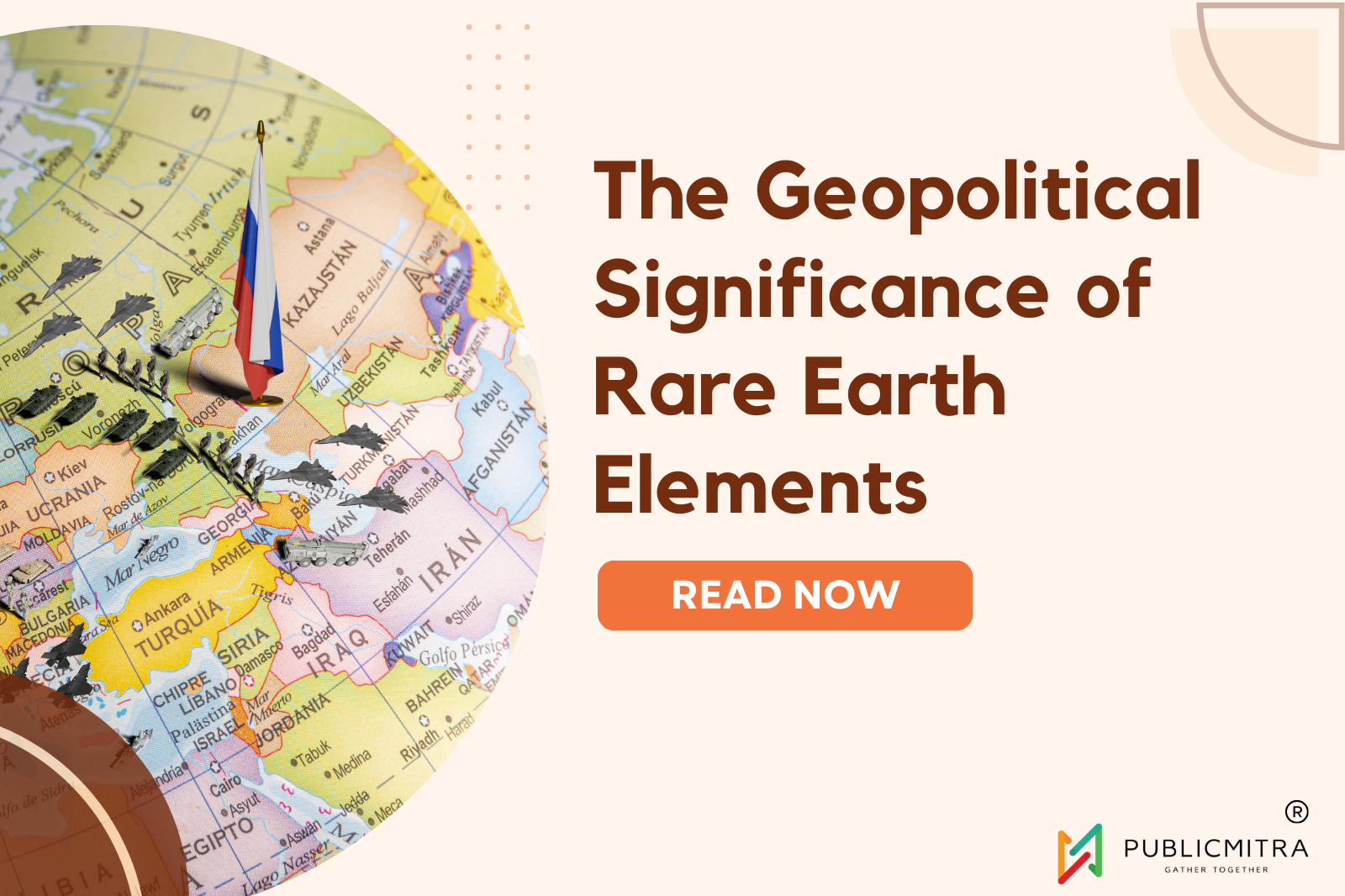The Geopolitical Significance of Rare Earth Elements
Unlocking the Power of Rare Earths: How They Shape Our World
In a world increasingly driven by technology, it’s easy to take for granted the components that power our devices and fuel our progress. Rare earth elements, a group of minerals placed rather insignificantly on the periodic table, play a pivotal role in our daily lives, from the smartphones we rely on to the renewable energy sources that promise a sustainable future. However, with their scarcity, environmental impact, and the potential national security implications they pose, the geopolitics of rare earth elements becomes a topic deserving of our attention.
The Critical Role of Rare Earth Elements in Modern Technology
Rare earth elements, a collection of seventeen minerals, are essential to the production of numerous high-tech devices. They have become the backbone of technological advancements, enabling tech to be extremely compact and enhancing performance. From the vibrant screens of smartphones to the powerful magnets that drive our electric vehicles, rare earth elements provide the basis for our modern innovation. They are crucial in the development of renewable energy technologies, such as wind turbines and solar panels, allowing us to transition towards a more sustainable future.
China’s Monopoly and the Perils of Overreliance
One country dominates the production of rare earth elements: China. With its vast reserves and low-cost extraction methods, China has established itself as the primary supplier, accounting for over 80% of global production. This monopoly raises concerns about overreliance on a single supplier. As rare earths become increasingly vital to various sectors, including defense and technology, disruptions in the supply chain can have far-reaching consequences for global industries. A diplomatic disagreement or trade tensions could swiftly lead to scarcity and price hikes, leaving nations vulnerable and scrambling to secure alternative sources.
National Security Considerations and Advanced Defense Technologies
Rare earth elements are not only indispensable for consumer devices but also have significant implications for national security. These minerals play a critical role in advanced defense technologies, including missile guidance systems, radar, and surveillance equipment. As governments strive to maintain technological supremacy and safeguard their interests, ensuring a secure and reliable supply of rare earth elements has become a matter of strategic importance. Dependence on a single supplier like China raises national security concerns, prompting countries to explore options for diversification and domestic production.
The Environmental Challenges and the Need for Sustainable Practices
The extraction and processing of rare earth elements pose substantial environmental challenges. Mining operations often result in habitat destruction, water pollution, and the release of harmful chemicals. Furthermore, the radioactive materials present in some rare earth minerals have long-term implications for the health and safety of both workers and nearby communities. To address these concerns, sustainable practices in rare earth extraction and recycling are crucial. Developing environmentally friendly mining techniques and promoting responsible disposal and recycling of electronic waste can help mitigate the environmental impact associated with the production of rare earth elements.
Diplomacy and Strategy: China’s Soft Power and Opportunities for Collaboration
Beyond the economic and environmental dimensions, the geopolitics of rare earth elements extend to diplomacy and strategy. China’s dominance in rare earth production has positioned it as a wielder of soft power. By leveraging its monopoly, China has the potential to influence global politics and gain diplomatic advantages. However, this situation also presents opportunities for international cooperation and diversification. Countries around the world are exploring options to develop their rare earth resources, forge strategic partnerships, and promote fair trade practices to reduce their dependence on a single supplier.
The Broader Context: Rare Earth Elements in Global Affairs
Rare earth elements, although seemingly unassuming, play a vital role in shaping our world. From personal technology devices to national defense systems, these minerals have become the linchpin for progress and security. The scarcity, environmental impact, and national security implications associated with rare earth elements require our attention and warrant proactive measures. Recognizing the significance of these minerals in the broader context of global affairs is crucial for ensuring a sustainable and secure future.
In conclusion, rare earth elements underpin the technological advancements that define our modern world. Balancing the need for sustainable practices, diversification of supply chains, and fostering international collaboration in the rare earth industry are critical for reducing risks and maximizing the benefits they offer. As the geopolitical landscape evolves, understanding the interplay of politics, economics, and sustainability in relation to rare earth elements will be essential for securing our future prosperity and safeguarding our global interests.












